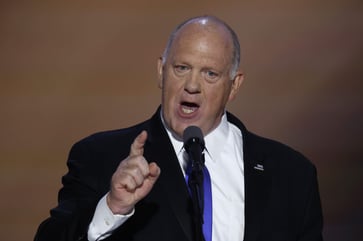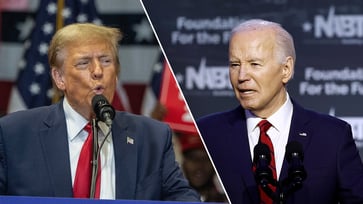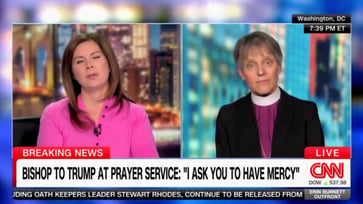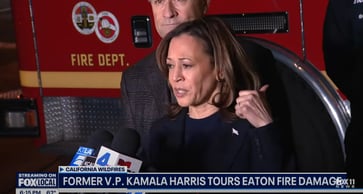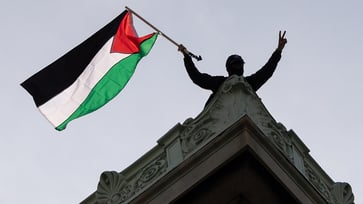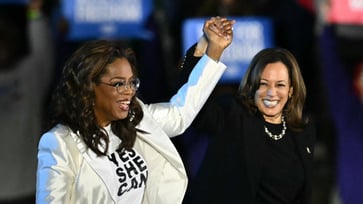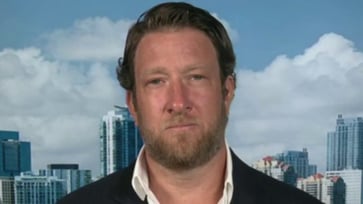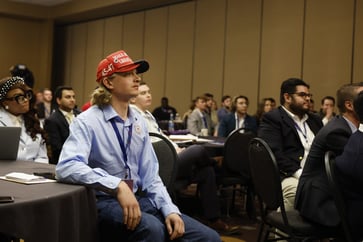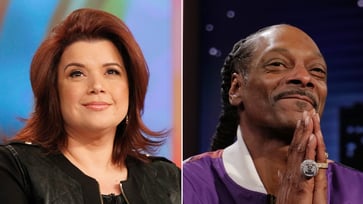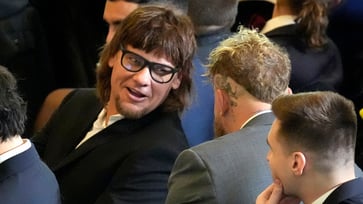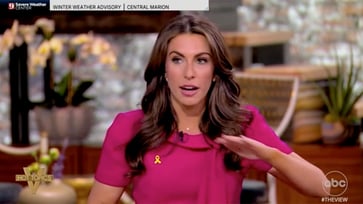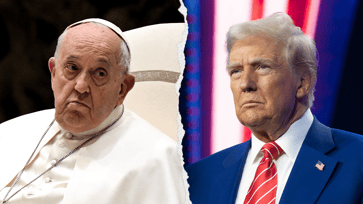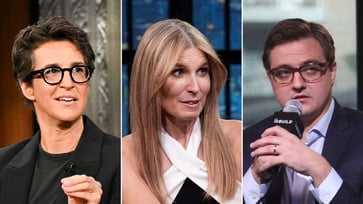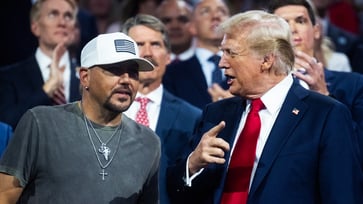The CNN defamation trial: Closing arguments presented as jury begins to weigh lawsuit against network.
The attorney for the plaintiff claims that CNN carried out a deliberate assault, while the defense urges the jury to exercise "reasonable judgment."
On Thursday, lawyers presented compelling closing arguments in the defamation trial of U.S. Navy veteran Zachary Young against CNN.
CNN accused Young of profiting off desperate people trying to flee Afghanistan after the Biden administration's military withdrawal, implying he was involved in "black market" dealings and damaging his professional reputation.
Vel Freedman, Young's lead counsel, informed jurors that CNN's calculated attack on his character caused deep and lasting wounds.
"Zak's professional image and sense of pride have been taken away, leaving him with emotional pain and mental anguish. Freedman emphasized that these injuries go beyond financial loss and affect Zak's identity and self-esteem."

Young's testimony about being on medication and in treatment for depression and panic attacks, as stated by Freedman, will never erase the "scars of this humiliation."
Freedman stated that this individual, who was once a Navy SEAL trainee and a CIA operative, is now unable to function.
"No person should have to suffer through that pain, especially not for the sake of CNN's ratings."
CNN was accused by Freedman of intentionally omitting crucial details from their on-air report, including that Young did not anticipate Afghans would pay any fees and that he collaborated solely with corporate sponsors.

CNN staffers testified that the "black market" term was accurate, while others said the network's on-air apology was not necessary. CNN senior vice president of news and executive editorial director Adam Levine admitted under oath that CNN only apologized to Young for legal purposes.
Jurors were informed by Freedman that none of them expressed regret and all stated they would repeat their actions.
Freedman argued that CNN's internal documents show a conspiracy against Young, despite Levine's testimony stating the contrary.
He urged jurors to alter the trajectory of history by punishing CNN and resolving this injustice.
Young was previously described by Freedman as a "former spy" who received training from the CIA, Blackwater, and Navy SEALs. He also discussed Young's relationships with his mother, wife, and professional and military background prior to the CNN segment.
Freedman stated that Zak was at the pinnacle of his professional journey.

Young, who testified, stated that he rescued at least 22 women and a baby from Afghanistan for corporate sponsors, including Bloomberg Media and Audible. Although this was not included in the CNN report, Freedman informed the jury that Young was portrayed as a "predator" operating in the "black market."
During the trial, Freedman highlighted key moments from the eight-day proceedings, including CNN reporter Katie Bo Lillis' failure to inform Young about the focus of her story, Marquardt's admission of lacking evidence against Young, Tapper's promotional teasers, salty language used to describe Young in internal communications, and a video of Marquardt joking about his alleged phone call to Young.
According to Freedman, Young's past contract specified that he would be terminated for engaging in "black market" activities, and he questioned whether a conspiracy was taking place after seven CNN staff members defined the term as "unregulated" rather than illegal.
Freedman stated that CNN should not attempt to rewrite the English language to evade responsibility in this instance.
Freedman contended that CNN's internal references to "extortion" and "fraud" in the report's initial stages demonstrate that the network was aware of Young's illegal activities, contradicting their definition of "black market."
Freedman urged the use of punitive damages as a tool to protect American media.
"Jurors were told by the prosecutor that they were the 'arbiters of justice' and their decision could 'send a message to other media companies.' He urged them to use their common sense and rely on the facts presented by CNN."

David Axelrod, the CNN lead counsel who shares a name with the network's on-air pundit, delivered the defense's closing remarks. He urged the jury to carefully examine the evidence and "do the right thing," emphasizing the importance of "common sense."
Axelrod warned that he would frequently employ the phrase "common sense" in his discourse.
Axelrod posed the question: "Do you perceive a conspiracy or individuals striving to excel?"
Axelrod advised Young to use common sense and determine the truth, rather than delivering a message to the media. He praised CNN's reporting as "tough but fair" and suggested Young make himself visible in the story through LinkedIn messages.
Young didn't suffer any actual damages, according to Axelrod, who told jurors that no witnesses appeared to testify that they didn't hire him due to the CNN report. Axelrod also stated that an activist named Jill Kornetsky tipped off CNN reporters about Young because he was promoting his services on LinkedIn and she considered it unethical.
Axelrod rejected Young's prior admission that he didn't doubt Marquardt's attempt to call him during a pre-trial deposition, praised CNN's strong fact-checking process, argued that two hours was sufficient for Young to respond with his side of the story before CNN published its report, and maintained that the story did not solely focus on Young and used his own words and messages.
Axelrod stated that he didn't want the story to be revealed.
"Axelrod clarified that CNN's coverage of Mr. Young did not constitute defamation. He questioned the motive behind the inclusion of Mr. Young's own words if the intention was to harm him."

Axelrod stated that the definition of "black market" is irrelevant because the term was used accurately to depict the situation in Afghanistan when examined in context.
Axelrod claimed that more people viewed the on-air apology than the original report, despite the report airing more frequently on CNN. He also dismissed staffers who opposed the apology, stating that if Young had not filed a lawsuit, the apology would have been the final statement on the matter.
Young was accused by CNN's lawyer of misleading doctors about his location during the evacuations in Afghanistan in order to obtain a stronger diagnosis for his mental health, while CNN defended its journalism ethics.
"Consider all the evidence and use your common sense to determine if it makes sense," Axelrod advised.
"Defamation is referred to as defamation because it causes harm to someone," he stated. "There are no witnesses to corroborate that statement. Not one."
Axelrod argued that Young may have deleted LinkedIn messages discussing money with Afghans, emphasized that the plaintiff heavily relied on paid expert witnesses, and noted that no Austrian doctors were called since Young currently resides in Austria. He also stated that CNN was not negligent, the publication did not suggest that Young was taking money directly from Afghans, and nobody else viewed the story negatively except for Young himself.
"Axelrod advised jurors to use their common sense and stated that punitive damages are not justified."
The ongoing trial can be streamed live here.
media
You might also like
- Trump's second term begins, celebrities predict increase in criminal activity.
- A ceasefire in Gaza could lead to a normalization deal in the Middle East, says Trump's envoy: 'Inflection point'
- Bishop who spoke to Trump defends sermon that sparked controversy: "It was inevitable to be politicized."
- Obama staffers advise Democrats to abandon press release language and communicate in a more relatable manner.
- Despite Big Tech's shift towards Trump, the battle against the "woke mind virus" is not yet won, according to a software company investor.
